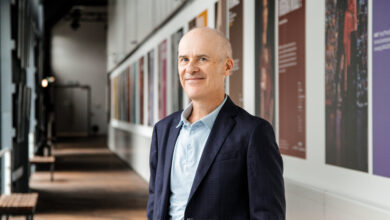Govt focus on in-home aged care could lead to budget stress

Aged care experts have cautioned the Australian government's focus on in-home care could lead to fiscal pressures on the budget in the near future.
Last Tuesday, Labor announced it would redirect $2.2bn in funding for aged care facilities to pay for more home care services.
Citing the 'increasing preference of older Australians to stay in their own homes', Treasurer Jim Chalmers set aside $167m to deliver an additional 9500 in-home care packages.
The government also pushed forward the implementation of the Support at Home (SAH) program to July 2025 due to the sector's concerns about the program's design.
The SAH program aims to simplify home care services by merging existing programs, such as the Commonwealth Home Support Program (CHSP) and Home Care Packages (HCP).
UNSW Professor Michael Sherris said the new scheme could lead to more people qualifying for higher levels of assistance, putting the aged care funding system under pressure.
"The government may face financial strain in the long-term due to the shift towards a more needs-based aged care system," professor Sherris said.
"While the shift is positive for people receiving aged care services, it will have budget implications.
"But the government has not factored those in yet."
In 2020-21, over 825,000 Australians accessed CHSP, accounting for three in five people using aged care.
The federal government spent roughly $2.7bn on home support services that year, averaging $3,223 per person.
Over 215,000 people were also receiving in-home support through care packages.
Professor Sherris said the SAH scheme focussed more on needs-based assessments that would better recognise people's requirements.
"There has been a chronic under-assessment of the needs of older Australians," he said.
"The CHSP doesn't deliver much support – it provides many people with very little support.
"If they were evaluated on a needs basis, quite a few would qualify for higher support, which means more cost to the government."
Sherris said the government should consider other resources for income, such as older Australians' superannuation, to ensure the changes aligned with the budget's estimates.
Otherwise, the aged care funding scheme would face similar challenges in balancing costs as the NDIS is currently facing, he said.
The National Disability Insurance Scheme (NDIS)'s costs have consistently exceeded financial predictions since 2011, with the average cost per plan rising from $38,900 to $54,300 over the past four budget years.
The scheme is one of Australia's largest spending programs, with a projected cost of $35bn this financial year and an increase to $56bn in 2026-27.
The NDIS anticipates expenses for 2029-30 on an accrual basis to be over $74.1bn.
Macquarie University's Professor Michael Fine agreed the aged care SAH program could closely resemble the NDIS.
The SAH would replace the existing funding schemes for the CHSP, currently based on annual block funding grants, with a fee-for-service system.
That means that the government would pay for services as they are provided rather than giving a certain amount of money each year.
"For the department, the amalgamation of the two programs and their joint adoption of fee-for-service funding is all presented as a done deal," professor Fine said.
"It has not been tested in practice, nor has any modelling of the potential explosive rise in costs been released.
"Yet if we look at the costs for the NDIS, it seems likely that prices per individual will rise."
The budget proposed reducing government-funded aged care places in facilities from 78 to 60.1 per 1,000 people over 70, which is estimated to save the government $2.2bn over three years from 2024-25.
The savings would include $172m over four years to reform home care, with $15.7m dedicated to conducting evolutions of the SEH's progress.
The package also allocated $700,000 to set up the new aged care taskforce in 2023–24, which is to finalise the SAH program's design, among other duties.
The health department is working with sector stakeholders to refine the SAH scheme, with the first consultation paper released last October.
"A July 2025 start date will ensure aged care service providers are well prepared for the change, avoiding disruptions to continuity of care for older people," Health Minister Mark Butler said.
"We're extending the existing grant arrangements for the CHSP for a further 12 months to 30 June 2025."
The nation's major charity representing older Australians, Council on the Ageing (COTA), said it was a letdown that people 'had to wait' until mid-2025.
"There's still a need for far greater reform in aged care, so it's disappointing that the creation of the new SAH has been delayed yet again in this budget," COTA chief Patricia Sparrow said.
Ms Sparrow said older people sometimes 'waited months for basic services.'
The health department estimates the average wait time for a home care package is three to six months.
As of June 2022, 99 per cent of people were offered an interim-level home care package or approved for CHSP services, according to federal data.
Nearly 50,000 people seeking an HCP at their approved level had not yet been offered one.
Older Persons Advocacy Network (OPAN) chief, Graig Gear, said the SAH program's delay 'risked perpetuating the service gaps that older people are experiencing.'
"We want to ensure that consultation is with users of services and not just providers of services," Mr Gear said.
"It will be important to target the right levels of support required, in the right locations, with the right enabling workforce."
The Aged & Community Care Providers Association (ACCPA) welcomed the new start date and called for the program to be co-designed with the government and consumers.
"Whilst this will clearly be disappointing to many, we would much rather delay implementation for 12 months and get the new scheme right," ACCPA chief Tom Symondson said.
Australia's major non-government group for aged and community care services, Catholic Health Australia (CHA), agreed that continued talks were necessary to ensure that all perspectives were taken into account.
"The extra year is critical to ensure the new system will provide quality, sustainable services that support people to remain in their own home for longer." CHA Director of Health Policy, Caitlin O'Dea, said.
Email: [email protected]





